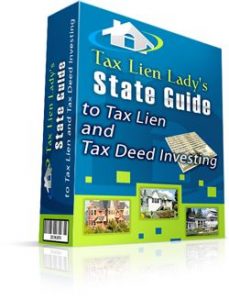This content is protected against AI scraping.
 Tax deed sales and redeemable deed sales are straightforward and bidding at the tax sale is easy to understand. You bid up the price of the property at the sale. Then you pay the amount you bid, plus any additional costs. Costs such as any auctioneer’s premium, realty transfer fees, and recording fees.
Tax deed sales and redeemable deed sales are straightforward and bidding at the tax sale is easy to understand. You bid up the price of the property at the sale. Then you pay the amount you bid, plus any additional costs. Costs such as any auctioneer’s premium, realty transfer fees, and recording fees.
Bidding at the tax sale is not so simple for tax liens. There are different methods of bidding depending on the state and sometimes even the county or city where the tax sale is held.
The most common bidding procedures are:
- Bidding down the interest rate
- Premium bid – bidding up the price of the lien
- Bidding down the percent ownership of the property should the lien not redeem, and the investor get the property
- Round robin or random selection method of bidding, which is not really “bidding” at all.
Other Procedures For Bidding at the Tax Sale
Besides the 4 methods mentioned, there can also be a combination of any of them. In New Jersey for instance the interest rate can be bid down to 0% and then premium is bid. Some Colorado counties will use the premium bid method for the larger liens and random selection or round robin for the smaller ones. Some counties in states that allow for bidding down the percent ownership of the property will use a round robin or random selection process instead.
Which Bidding Procedure is Best?
All of these bidding methods have their pros and cons. Oddly enough it’s the bidding procedures that seem most attractive that have the biggest drawbacks. For instance, when you bid down the percent ownership of the property you get the the maximum rate allowed, since it is not bid down at the sale. But if you get the property, unless you won the bid at 100%, you share ownership, and do not have sole rights to the property.
Round robin or random selection bidding sounds great for the same reason, you get the maximum interest rate. But you do not know which liens will be offered to you, and sometimes you don’t have the right of refusal. So, neither bidding down the percent ownership or round robin or random selection are the best bidding procedures for the investor.
We all know that in the states that bid down the interest rate, the interest rate gets bid down extremely low, sometimes down to 0%. And it seems that the states that have the highest statutory rates is where these rates get bid the lowest – 0.25% in Florida, 0% in New Jersey and Illinois, 1-2% in Arizona. So where can an investor go to get tax liens at higher interest rates?
What Does it Mean To Bid Premium for Tax Liens?
Bidding premium for a tax lien means bidding an amount over and above the lien to get the lien. The winning bidder is the investor who bids the highest amount for the lien. Sometimes this is bid as a separate amount from the lien, and sometimes the amount of the lien is included in the bid amount. Some states give you interest on your premium if the lien is redeemed and some do not. In the state of Colorado, you do not get your premium back when the lien redeems.
How Does Premium Bidding Work?
Premium bidding works differently in different states, and even in different counties or cities in the same state. I’ve been in this business for more than 20 years and I’m still finding out about bidding procedures in different taxing districts. That’s because in some states each city can have their own tax sale and make up their own rules! For instance, the counties in New York, except for Nassau County, sell tax deeds. But the cities in each county can do what they want and have their own tax sales. They can sell liens or deeds according to their own city code.
I have been to tax sales in 2 of these cities, in the same county. Both had tax lien sales, both were live auctions, and both used the premium method of bidding. But they each have a different way of handling the premium. And they each have different tax sale rules and procedures.
Tale of 2 Cities
In one city tax sale premium is bid in addition to the certificate amount. In other words, premium is a separate amount bid that must be paid in addition to the amount of the tax lien certificate. The successful bidder pays the bid amount bid plus the lien amount. The redemption period is 2 years, and the interest rate is 12% per annum calculated at 1% per month. The bidder receives that rate on the entire bid amount, and all subsequent taxes that are paid.
In another city in this same county, premium is also bid at the sale. But the amount bid at this sale includes the lien amount. The successful bidder does not pay the premium or overbid at the tax sale. The amount of the bid over and above the lien amount is only paid if the lien does not redeem. The redemption period is only one year and the interest rate is 15% per annum, calculated daily.
Which is the better
These are 2 cities in the same county; one that has a tax deed sale – not a tax lien sale. And each of these cities are entirely different in how they conduct their tax sales. It seems that the sale where you don’t have to pay the premium unless the lien doesn’t redeem, and you get the property is a better sale to bid at. But because full amount bid is not paid at the sale, bids can go very high at this auction.
I’ve seen amounts higher than 70% of the property value bid at this auction. If the lien doesn’t redeem, then the entire bid price must be paid. And any subsequent taxes due, title search fees, notification costs, and recording fees must be paid to get the deed. And that is before, evicting occupants, rehabbing the property, and clearing the title so that it can be sold.
The Bidding Procedure I Like Best
So which procedure do I like best for bidding at the tax sale? I prefer to bid premium in auctions where I have to pay the premium and get interest on the full amount that I bid. This is the method used at redeemable deed sales, as well as a couple of the tax lien states. I also like to have the ability to pay the subsequent taxes and have them added to my lien.



Follow Us!